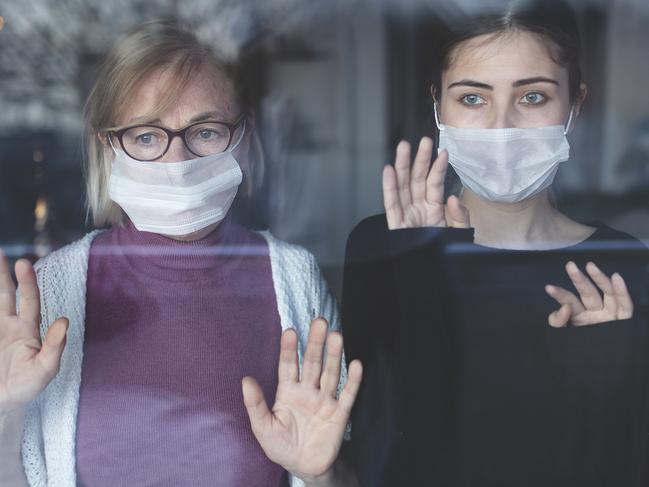More young NSW women than men diagnosed with COVID-19
It’s the battle of the sexes where there are no real winners. NSW Health statistics reveal women in nearly all age groups are outnumbering men in COVID-19 positive diagnosis. Here’s why
NSW Coronavirus News
Don't miss out on the headlines from NSW Coronavirus News. Followed categories will be added to My News.
In almost all age groups, women outnumber men, but in the highest category age group of 20 to 29, 270 women have tested positive compared to 203 men.
Sydney Respiratory virologist Professor Brian Oliver from the Woolcock Institute said international figures had not identified any gender difference for the disease, putting the discrepancy in the younger age groups down to the bravado of men.
“It is more likely that women are more in touch with what is going on in their body than men and men have a bit of bravado about she’ll be right and ignoring things and you see that with a whole range of diseases so it could be more women are going for testing.

“Overseas, women are not more affected than men, so I suspect it is an unusual Australian thing that women know what it good for them.
MORE CORONAVIRUS NEWS
‘Doctors will die’: Dire warning over PPE shortages
No more million-dollar coaches: Grim reality of new NRL
He added more men may be walking around undiagnosed.
“Men don’t like going to the doctor at the best of times, so they might be avoiding going,” Prof Oliver said.
National figures also show higher cases of women with COVID-19 in the 20 to 29 group.
Virologist Associate Professor Ian Mackay said it was too early to identify what was really going on.
“There are often biases in gender and age group, but it is too early to know, it may come down to who was travelling, it could be those little reasons, but we also do see gender bias in kids with more boys suffering respiratory disease. It could be male versus female immunity but we need to have a closer look down the track,” he said.
Figures published in the Lancet this week reveal that there are equal numbers of cases between men and women so far but there is a significant sex difference in mortality and vulnerability to the disease with men more likely to die.



“Emerging evidence suggests that more men than women are dying, potentially due to sex-based immunological or gendered differences, such as patterns and prevalence of smoking,” the paper said.
Women are also more likely to work in the health force with more than 90 per cent of workers in Hubei province in China women and therefore exposed to more risk.
